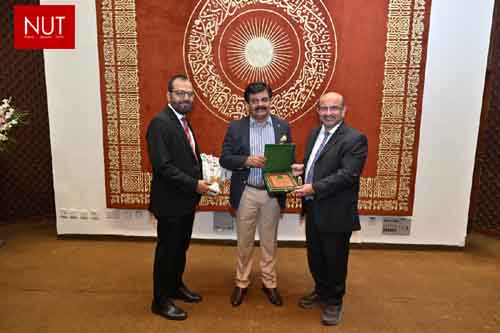A critical global conversation on safeguarding and shaping the future of the next generation began today as the 13th International Conference on ‘Raising Children in Our Times,’ hosted by the Aga Khan University’s Institute for Educational Development (IED), opened in Karachi.
Chief Guest Syed Sardar Ali Shah, Minister for Education and Culture, Sindh, who declared the proper raising of children to be the “fundamental challenge of our era”. He asserted that the future is built not in parliaments or factories, but in the “nurturing, protected, and enlightened spaces we create for our children today”.
This urgency was echoed by Dr. Farid Panjwani, Dean of IED, who noted that “we often put the onus of raising kids solely on parents, as if it was a private and individualistic responsibility. This also makes us ask ‘what kind of world are we raising our children in?’. Where is the responsibility of the media, corporations and the state?” He hoped that the discussions in the conference will help reclaim the idea that raising children is a social act.
The foundational dialogues grappled with the profound ethical weight of this task amid several global challenges, including deep inequality, digital saturation, and climate anxiety. Keynote speaker Dr Lynne Wolbert, Associate Professor, Vrije University Amsterdam, captured this ethical dilemma by questioning how humans, having contributed to so many of the world’s problems, can justifiably aim to raise flourishing individuals.
Day one moved quickly to address these on-ground challenges. A thought-provoking panel discussion on “Raising Resilient Learners in a Digital and Divided World” brought together experts like Haroon Yasin, CEO of Taleemabad, and Bronwen McGrath, Global Programme Manager at the Aga Khan Foundation, to explore concrete ways education systems and families can nurture resilience, empathy, and critical thinking.
Following this, the panel “Beyond Survival: Shaping Safe and Supportive Spaces for the Modern Child” addressed disability inclusion and supportive environments, featuring panellists including Omair Ahmed, CEO of NOWPDP, and renowned educationist Dr Mehmood Mughal, Dr Nargis Asad, Interim Chair Department of Psychiatry and Dr Fozia Parveen, Environmental Scientist at AKU.
Looking ahead, the conference will shift focus from the philosophical ‘why’ to the practical ‘how’, dedicated to developing “tangible pathways” and a blueprint for action. Discussions will explore specific areas that define modern childhood, beginning with groundbreaking models of Early Childhood Education and Caregiving.
Further sessions will confront the stark realities of the economic divide; navigating the double-edged sword of technology, AI, and media; and address the vital importance of safeguarding mental health and well-being; and cultivating moral development.
Ultimately, the conference seeks to champion the urgent need for inclusion and reimagine the essential skills and dispositions necessary for a lifetime of adaptive learning, emphasizing the vital role of the arts, humanities and imagination.

